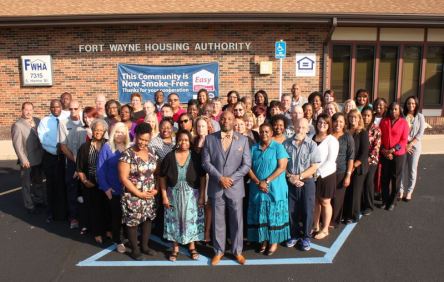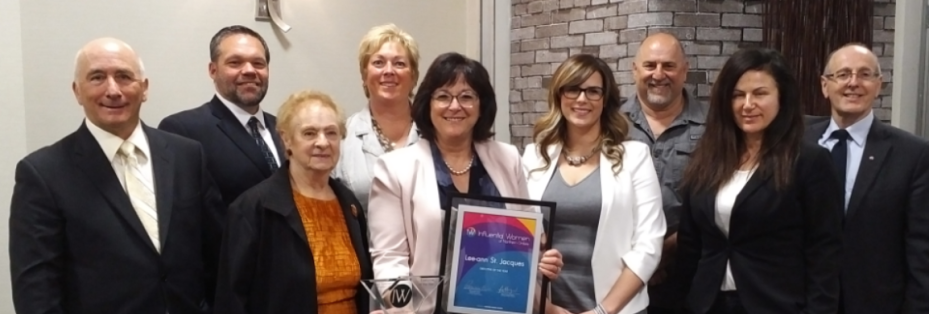The Housing Opportunity Through Modernization Act (HOTMA) of 2016 brings significant changes to HUD’s public housing program. After years of preparation and implementation processes, public housing agencies across the country are ready to change the way they complete many of their core processes. Yardi is also ready for HOTMA with updates to our PHA Suite in development, as well as a plan to provide hands-on assistance to our clients as we work through HUD’s new program mandates. Gabrielle Van Horn, director of client services for Yardi, recently led an online webinar for Yardi clients walking them through Yardi’s HOTMA strategy. The webinar’s agenda included an overview of HUD changes, notably: Finalization of the Public Housing Over-Income Rule: Section 103 (PIH 2023-3) Final Rule for Sections 102 and 104 HOTMA Implementation Revisions to all 50058 forms Housing Information Portal (HIP), which replaces IMS/PIC National Standard for the Physical Inspection of Real Estate (NSPIRE) Van Horn walked attendees through Yardi’s plan to accommodate these upcoming changes. She also provided a timeline for all Yardi PHA clients who will need to upgrade their software this year, in order to remain compliant with the new HUD rules. Important notes on preparation and training from Gabrielle’s presentation included: Prepare your Board of Commissioners: ACOPs and Admin Plans must be adjusted. These are not optional changes We recommend utilizing training from HUD, industry experts, and industry groups such as NAHRO and PHADA for regulatory guidance An in-person training will be offered at the Yardi Advanced Solutions Conference in San Diego, September 6th – 8th Additional training will be available via online learning and documentation for those unable to attend the conference “This is an all-hands-on-deck process for the PHA client support team over the next few months. We’ve got a plan to help all of our clients to get their software ready for new HUD requirements, and we are allocating resources from within to help make the process as smooth and timely as possible. We’re committed to helping our clients through this process,” said Gabrielle. As a leading provider of PHA software and services, Yardi has access to contacts at HUD to seek clarification and provide feedback on how new rules can be accommodated. Yardi, as well as other vendors, will soon have a private meeting with HUD to discuss particular challenges and to provide advice on implementation strategies. Public housing agencies who are current Yardi clients can log on to Client Central to see Gabrielle’s recorded webinar. Questions submitted during the session, along with answers from Yardi, are also available on Client...
Make the Most of MTW
What’s Next for Participating PHAs
Moving To Work (MTW) was a groundbreaking policy moment for HUD in 1996. Through MTW, HUD selected a small group (or cohort) of public housing agencies (PHAs) for the chance to create their own programs using HUD money. Gabrielle Van Horn speaks at NAHRO last month. The only caveat to these MTW programs was the they must accomplish specific goals set by HUD, including: Finding better ways to use federal funds with emphasis on reducing costs and improving effectiveness and availability of servicesHelping households improve economic self-sufficiency through incentives for participation in job training, education or job search activitiesIncreasing the availability and selection of housing resources for low-income households As a Demonstration Program, HUD share successes and challenges that each PHA participating in MTW experiences. So, MTW is not just a chance for PHAs to help their local communities, but also help other PHAs craft programs that may work elsewhere. MTW’s recent expansion is an opportunity for more agencies to participate in creating and testing innovative housing policies that can revolutionize the subsidized housing industry. That makes this a great time to check in with Gabrielle Van Horn, director of PHA support for Yardi, to get her perspective on MTW’s history and future. Gabrielle, tell us about Yardi’s first involvement with MTW. Our experience goes back more than two decades, all the way back to 2000. From the beginning, we’ve had MTW clients working with programs falling under the categories of administrative efficiencies, rent reform, work requirements and incentive programs. Collaboration with our customers in program design and our working experience with HUD programs have helped make our customers’ visions come to life. Yardi is honored to partner with some of the most progressive agencies in the country. About half of the original MTW agencies are Yardi clients, so we were well positioned to work on the expansion phase of MTW. We have clients in each cohort. We took the initiative to engage with them as soon as possible so that we could support their newly designed programs and make sure they could track data for accounting, household demographics, changes in income and other key information. How does Yardi help track control groups? To me, HUD’s requirement of control groups is one of most interesting components of the MTW Expansion guidelines. Control group data can be quite helpful in testing program design. Tracking non-participating households alongside those that are part of MTW designed programs makes it possible to prove the effectiveness of locally designed programs. That proof will go a long way in the future of public policy design. That’s why Yardi has ensured that control group tracking is a key component of our custom programming for MTW Expansion rent reform clients. Can you give us an update on how Yardi is supporting MTW Expansion 50058s? This is a new 50058 form and a new file format. We’ll be using new technology to submit these 50058s to HUD to HIP (Housing Information Portal). We have been testing and providing feedback to HUD since they first opened their original testing site to vendors. As soon as HUD is ready, we’ll have the interfaces in place to submit them electronically. One of the greatest benefits of having a longstanding relationship with HUD is the trust that we are doing our part. That means that our clients feel comfortable and confident knowing we have designed features that will reflect their vision and meet HUD’s compliance requirements. What do you think is the most exciting cohort? I am very excited about the Landlord Incentives cohort. Finding ways to make the program more appealing to landlords is critical to the future of the Housing Choice Voucher program. Are you prepared for the next MTW cohort? Yes. We have a team of programmers and support staff ready for the next programs that come from our clients. But, here’s an even better question: is the next...
Leveraging Tech
Discussion at ONPHA
Technology has the power to transform our work and our lives. During the Ontario Non-Profit Housing Association (ONPHA) conference, Yardi sponsored and moderated the session, Impactful Innovation: Leveraging tech to gain visibility and empower your teams. Meherzad Bakht, senior account executive at Yardi Canada Ltd. moderated the panel attended by Kelly Black, chief administrative officer, District of Timiskaming Social Services Administration Board (DTSSAB), Clinton Reid, quality assurance and compliance manager, Woodgreen Community Centre and Abdulle Elmi, business lead, Housing Management Enterprise System (HoMES) at Toronto Community Housing Corporation. The live virtual event explored solutions that can help organizations improve oversight and visibility into their facilities and operations, elevate resident management and tenant care, and inspire diverse teams and drive efficiencies. Here are some of the highlights from the discussion. The quest for change Different factors served as catalysts for change within their organizations. Two consistent threads emerged: front-line staff endured repetitive, time-intensive manual tasks that often resulted in inefficiencies and inconsistencies; and disparate systems resulted in murky reporting and limited data analysis. The organizations sought for a way to streamline reporting, requiring fewer employees to spend less time identifying a single point of truth. Reid explained, “When we communicate to leadership that we can get the job done, we neglect to convey the amount of time and effort required to pull and complete a report.” He continues, “When COVID hit, we realized the number of resources put into reporting was significant.” All three organizations experienced some resistance at the ground level. Staff were leery of learning complex software that didn’t completely meet their needs or understand the social housing reporting requirements. The request to document processes also resulted in a sense of unease, though leadership assured their teams the efforts would ultimately support and simplify their work. Elmi said,...
Getting the Job Done
Hagerstown Thrives While Distant
Public housing agencies across the country are open for business, even when their physical offices are closed. Their services and resources are literally vital to the health, safety and welfare of millions of Americans. How do they make it work? Hagerstown Housing Authority (HHA), which serves the city of Hagerstown in Maryland, uses specialized software solutions from Yardi that connect their staff to critical workflows that serve waitlisted households, applicants, participants and residents, and landlords. “The coronavirus is an awful situation, of course, but it has given us an opportunity to help our staff realize the benefits of cloud-based software, as well as online solutions for our applicants and residents,” says Sean Griffith, executive director for HHA. HHA has been serving its residents for more than 65 years. As a high-performing housing authority, as distinguished by the U.S. Department of Housing and Urban Development, HHA owns and/or oversees 1,320 dwelling units in 11 communities and more than 900 Housing Choice Vouchers for use by residents who do not dwell in HHA-owned properties. Approximately 12% of the city’s residents are assisted by HHA housing resources. The waiting list for housing assistance from HHA grows daily as economic variables affect local residents. “There has been a definite uptick in need for housing assistance. Our properties are in demand, and the waiting list for Housing Choice Vouchers is growing,” says Griffith. Using RentCafe PHA, HHA makes it possible for interested households to place themselves on its waiting list. The process is handled completely online without the need for an office visit. That feature is particularly timely for HHA given the circumstances created by the COVID-19 pandemic. The agency went live with the Yardi PHA suite in the spring of 2019 and considers cloud functionality one of the...
Super Support
Fort Wayne Honored by NAHRO
Support services can be more effective and valuable to a community when providers work together. By taking a collective approach to serving needy residents, organizations can identify synergies in services and carefully plan which are best fit for specific clients. For example, a supportive housing program may have a vacant unit reserved for disabled veterans, and a veterans’ service office may have a client graduating from a transitional housing program. Coordinating those programs would help to smoothly transfer the veteran to the permanent housing unit. In Fort Wayne, Indiana, the Housing Authority (FWHA) has stepped up to help local organizations work more cooperatively. For its effort, FWHA received an Award of Excellence from the National Association of Housing and Redevelopment Officials (NAHRO). FWHA assists more than 8,000 individuals in their community at any point in time. Their clients’ needs for assistance go far beyond basic affordable housing subsidies. Some clients are formerly homeless and need assistance furnishing their new permanent homes. Others require access to discounted food and clothing. In fulfilling those types of client requests, FWHA found itself working with many local service providers. There are more than 150 in the Fort Wayne area, each with a set of services available. George Guy, CEO and director of FWHA, saw an opportunity to benefit the community by getting those providers together with a goal of forming a consortium of representatives that could exchange and coordinate services. The result of that coordination effort is what’s become known as Housing Strategies Meetings. FWHA invited 270 individuals to the first session, at which attendees saw more than 35 agencies present a high-level overview of their services. While receiving that program-level information was valuable, personal connections made in the room were also real benefits of the meeting. FWHA...
Save My Spot
Modernizing the PHA Wait List
Demand for public housing assistance far outweighs the available supply in nearly every community nationwide, but the challenges can be especially great in California. The Housing Authority of San Luis Obispo (HASLO) and the Housing Authority of the County of Santa Barbara (HACSB) are prime examples of public housing agencies challenged with creating housing opportunities for low-income residents. There is never a slow work day for HASLO or HACSB, and the mere opportunity to join a housing assistance waiting list can create a frenzy of activity. “The vitality of every community is dependent on housing that is attainable for all income levels, and public housing agencies add incredible value to the regions they serve. The magnitude of their waiting lists, nationwide, is a great demonstration of the scarcity and value of affordable housing,” said Boone Atkins, vice president of affordable housing and PHA sales for Yardi. A PHA waiting list includes households seeking public housing units, housing choice vouchers and affordable housing. Given the local market conditions, those lists would grow daily if the HASLO and HACSB kept lists open to new names permanently. However, closing waiting lists to new households is just one way to keep the lists under control. Another way to maintain PHA waiting lists is periodically purging the names of households who are no longer seeking assistance. Purging PHA waiting lists has historically been a labor intensive process requiring envelope stuffing and data entry. PHAs also incurred costs for postage and paper to facilitate mailing forms to thousands of waitlisted households. RENTCafé PHA, and its embedded Save My Spot waitlist management feature, can mitigate those costs. Yardi is the only PHA software provider offering a modernized waitlist management solution, bringing relief to a longstanding industry issue. A Primer on RentCafe...
Easier Applications
For Affordable Housing
Submitting an application for affordable housing is a daunting challenge. Tax returns, paycheck stubs and bank statements are just the beginning of what applicants must provide to qualify for a unit. Proof of eligibility for housing assistance is a must since public funds often support rents below market rate. Federal, state and local housing agencies have policies and procedures in place that ensure affordable housing resources only serve qualified residents. In the past, affordable housing providers kept files with thick stacks of paper as proof of each resident’s eligibility status. Providers also keep similar files for denied applicants to document why a household was determined ineligible for housing assistance. Affordable housing providers are taking a modern approach to minimize paperwork and staff hours necessary to qualify residents. With online applications, providers are not only saving administrative costs, but also better documenting their resident files and boosting compliance with fair housing regulations. Rather than handing applicants a stack of forms to fill out, housing specialists can now direct applicants to an online portal to submit everything needed to qualify for a unit. RentCafe Affordable Housing from Yardi makes this possible, and it’s becoming more and more common throughout the industry. Just how big is the RentCafe Affordable Housing trend? More than 100,000 housing applications have been created online since the product launched in 2016. That’s more than 6,000 per month, and the numbers are growing every day. “Affordable housing applications have evolved from cumbersome, paper-based hassles into easy, online workflows. Applicants can submit documentation from their home computer or mobile device. That freedom saves applicants from taking time off work to come into the office for a lengthy in-person interview,” said Dave Kessler, vice president of affordable housing and PHA at Yardi. “If you consider...
Cutting Costs
Online Affordable Housing Apps
Submitting an application for affordable housing is a daunting challenge. Tax returns, paycheck stubs and bank statements are just the beginning of what applicants must provide to qualify for a unit. Proof of eligibility for housing assistance is a must since public funds often support rents below market rate. Federal, state and local housing agencies have policies and procedures in place that ensure affordable housing resources only serve qualified residents. In the past, affordable housing providers kept files with thick stacks of paper as proof of each resident’s eligibility status. Providers also keep similar files for denied applicants to document why a household was determined ineligible for housing assistance. Affordable housing providers are taking a modern approach to minimize paperwork and staff hours necessary to qualify residents. With online applications, providers are not saving administrative costs, but also better documenting their resident files and boosting compliance with fair housing regulations. Rather than handing applicants a stack of forms to fill out, housing specialists can now direct applicants to an online portal to submit everything needed to qualify for a unit. RentCafe Affordable Housing from Yardi makes this possible, and it’s becoming more and more common throughout the industry. Just how big is the RentCafe Affordable Housing trend? More than 100,000 housing applications have been created online since the product launched in 2016. That’s more than 6,000 per month, and the numbers are growing every day. “Affordable housing applications have evolved from cumbersome, paper-based hassles into easy, online workflows. Applicants can submit documentation from their home computer or mobile device. That freedom saves applicants from taking time off work to come into the office for a lengthy in-person interview,” said Dave Kessler, vice president of affordable housing and PHA at Yardi. “If you consider it...
Lee-Ann St. Jacques
Leadership in Northern Ontario
In the northern half of Ontario, Canada, daily life maintains a bridge to an earlier time. Economic drivers include gold mining, and until recently, a paper mill. Winters are long and sometimes unusually frigid. One local politician says the area, an eight hour drive from Toronto, is “truly one of the last frontiers left in the country.” But despite those links to the past, the region has modern problems. Poverty, addiction, domestic violence and elder care are issues here on the last frontier just like anywhere else. Thankfully, there are leaders like Lee-Ann St. Jacques to help address them. St. Jacques was recently honored as the Influential Women of Northern Ontario’s Executive of the Year. A passionate advocate for supportive housing services, she serves as Area Manager of the Cochrane District Social Services Administration (a Yardi client), which delivers social services to a far-flung region encompassing 145,618 square kilometers – and around 83,000 residents. “Housing is a critical part of our region’s future and yet it remains one of the most underfunded elements. Lee-Ann has not let that deter her from leading one of the most significant housing outcomes of our generation,” wrote Peter Politis, Mayor of Cochrane, one of the larger towns in the district. Politis and other area officials expressed profuse support for St. Jacques’ nomination for the executive honor. “One primary passion for Lee-Ann is that of ensuring adequate and affordable housing for the growing needs of seniors living in our community,” wrote Michael Shea, Mayor of Iroquois Falls, the town where St. Jacques lives and works. In addition to her day job, she has also served as the director of the Iroquois Falls Chamber of Commerce and worked toward establishing a community senior center and garden. “For me it is all about the people I serve. It is seeing the impact on their lives, that is my motivation. Everyone needs a safe place to call home; to live in dignity and to achieve a healthy quality of life,” St. Jacques said. She fell into public housing somewhat accidentally as a career path, but has now been with the CDSSAB for 28 years. In that time, St. Jacques has worked on numerous development projects to augment the area’s housing stock and consolidate local delivery of social services. Housing for victims of domestic violence and two-bedroom affordable and accessible units for seniors have been among the projects. The most recent work involved a public-private partnership to construct 32 units of supportive housing for seniors. With the final closure of the Resolute Paper Mill in Iroquois Falls in 2015, a significant portion of the town’s population relocated to find other jobs. The ripple effect impacted many. NE Ontario Communities are struggling with youth out-migrating to secure employment and seniors leaving to reside in supportive and assisted living facilities. “We are ahead of the curve when it comes to senior supportive and affordable housing, but we are not at the crest of Baby Boomers yet. This is a pilot project for us as we know based on our demographics and community consultations there is going to be an increasing demand over the next 10-20 years,” she said. Mayor Politis noted: “Our mothers and fathers, who have built their homes and lives here, can now remain in their roots, with dignity and family nearby. I can’t think of a better gift from one person to many others.” Within her organization, St. Jacques has impacted future-focused change, including the implementation of the Yardi Voyager platform. With such a far flung region to oversee, she noted that Yardi’s cloud based technology has been a huge help to the CDSSA. “Because of the size of our district, to be able to go to another community and have access to the database, or to be able to work from home, that’s fantastic,” she said. While St. Jacques is recognized regionally for her work, she...
Save My Spot
How to Solve PHA Waiting Lists
Fairness and transparency are essential to every decision a public housing agency makes to determine which households receive housing assistance. Waiting lists, though often loathed by potential residents, are an important piece of keeping that process transparent. PHAs follow complicated rules set by the department of Housing and Urban Development (HUD) to maintain waiting lists, which includes information like household income, veteran status, age, disabilities, and more. Depending on regional circumstances, it could be years before an applicant will be considered for housing assistance. PHAs typically open waiting lists to applicants for relatively short windows, since they could quickly become unmanageable if left open in perpetuity. To make waiting lists more manageable, PHAs periodically correspond with households to confirm their interest in remaining on the waiting lists for public housing or voucher assistance. Without routine maintenance, waiting lists would be perpetually clogged with households that have had a change in status, which may affect their eligibility, or are no longer interested in that particular waiting list. As important as waiting list maintenance is, it is also costly. PHAs have historically spent significant time and money on staffing, forms, and postage to keep waiting lists updated. Yardi PHA clients can now take advantage of a cost-cutting solution. It’s called Save My Spot, and it is a new standard feature of RentCafe PHA. Yardi is the only PHA software provider offering a modernized waitlist management solution, bringing relief to a longstanding industry issue. A RentCafe PHA Primer RentCafe PHA gives public housing and voucher applicants, residents and participants, and landlords online access to communicate with their local PHA, without having to visit the agency’s office. Households can sign up for a waiting list, submit applications, complete eligibility forms, upload documentation and more, all from a personal...
Boone Atkins
Yardi Leadership Series
Currently serving as Yardi Vice President of PHA and Affordable Housing Sales, Boone Atkins also spent decades as a Yardi user. With more than 22 years of experience in the real estate industry, Yardi gained a valuable asset when Boone shifted from a client into a leadership position in December 2014. “I met Anant Yardi in the early 90’s when I began working as a consultant and in executive positions for companies using Yardi software. From a client and employee perspective, my impression of the Yardi company has never changed. Yardi is truly dedicated to the mission of helping clients and employees succeed and grow,” said Boone. Atkins sees trends in the affordable housing and PHA industry as similar to market rate multifamily housing. “Our affordable and PHA clients want technology to help them become more efficient. No matter the industry vertical, it is all about getting the biggest bang for their buck.” Read on for more insight from Boone Atkins in our latest installment of the Yardi Leadership Series. When did you join the Yardi team? Atkins: My shift from Yardi client to employee happened in December 2012. In total, have more than 22 years of experience in the real estate industry. My current base of operations is Denver, but I’m on the road a lot with clients and staff. Did your impression of Yardi change once you became an employee? Absolutely not! This company is dedicated to the mission of helping clients and employees succeed and grow, and that’s never wavered in all my years associated with Yardi. How does Yardi help affordable and PHA clients become more efficient through technology? Atkins: We’re delivering on that expectation by automating and streamlining workflows for affordable housing compliance, ad hoc reporting, dashboard analytics, business...
Affordable Focus
Walla Walla Housing Authority
Amy Allred started her career in high-rise property management and commercial real estate development, working on major projects in Seattle. When she decided to relocate and take life at a more moderate pace, a new role as Finance Director for the Walla Walla Washington Housing Authority was the perfect fit. While working in large-scale housing development and high-rise condos in Seattle, Amy realized she yearned for a career with more meaning. She wanted the chance to make a positive and tangible impact, so she decided to trade her fast-paced urban lifestyle for something a little more rural with a hometown vibe. “I was working in Seattle and I realized I wanted more of a small-town feel, so I moved to Walla Walla,” says Amy. “The city is located in southeast Washington wine country, and it’s a beautiful place, with a slow-paced lifestyle.” She was hired as the Walla Walla Housing Authority’s new Finance Director four years ago. The agency is a Yardi client. “This position is a perfect marriage for me,” Amy said. “It combines my desire to give back to the community with my skills in real estate development.” The Walla Walla Housing Authority’s property portfolio may only be a fraction of the inventory available in a city like Seattle, but with 84 public housing units, 407 tax credit and market units, and 978 vouchers, there is still lots to do. “We’re not a huge agency,” admits Amy, “but we’re fairly good sized based on our county population and we are continuing to add inventory to our housing block.” Expanded Functionality During her time at Walla Walla, Amy has helped the housing authority expand and evolve. A team of 39 includes clerical staff, accounting, compliance and IT, property managers and inspectors, development, and...
Award Winning Programs
Improving public housing in Los Angeles
Providing high-quality, secure and supportive public housing in any major metropolitan area, as any housing provider can imagine, is a real challenge. Add on the desire to create a sense of community, offer sustainable building design, and truly change residents’ lives, and it might sounds like a task of insurmountable proportions. But the Housing Authority of the City of Los Angeles (HACLA) has earned national recognition for accomplishing all of the above. Along the way, they’ve become a model for public housing programming as they achieve real results through their efforts. HACLA, a Yardi client, manages 75,400 units, has a budget of $1 billion annually, and aims to increase its capacity by 30,000 units over the next decade. Conventional public housing, Section 8, special programs and a small portfolio of asset management units are included within its oversight. Truth be told, each of the programs that HACLA has been recognized for could be worthy of an article on their own. To provide a comprehensive overview of some of the amazing things the agency is doing, HACLA staff helped us assemble the following summaries. 1. Community Safety Partnership (CSP) Safety and policing is a vital part of any public housing program. In an effort to improve the relationship between Los Angeles public housing residents and the LAPD, an agreement was struck to assign 45 permanent officers to four public housing communities that needed a law enforcement presence. Imperial Courts, Jordan Downs, Nickerson Gardens and Ramona Gardens were each assigned 10 officers to work on crime reduction, programming, quality of life and communication with residents. This ongoing relationship allows residents to get to know the officers, bring them concerns, and work together to create solutions. 2. Dana Strand Senior Housing A major need within the affordable housing sector nationwide is for more senior units. A new 100-unitproject within HACLA, the Dana Strand Senior Housing Project, was recently constructed in the Wilmington neighborhood. A focus on sustainability and green features earned this project special attention. Dana Strange, which was developed through a partnership between HACLA and ROEM Development Corporation, achieved USGBC’s LEED-H Gold certification, one of the toughest in industry guidelines for sustainable building and maintenance. Dana Strand offers high-quality, affordable housing that encourages a healthy, active living environment and reduces impact on our air, water and landfills. 3. UCLA Students Contribute Building bridges between public housing and other community resources can be beneficial to both sides. HACLA partnered with UCLA to bring in energetic student volunteers for two significant community improvement projects. First, HACLA and 50 Bruins created a library in Ramona Gardens, with students painting shelves and sorting donated books. Next, 300 students helped beautify the grounds of the Nickerson Gardens community. Socially, benefits came on both sides. The students learned more about the needs and condition of public housing in LA, and residents were exposed to young university volunteers, encouraging education and community service. 4. Homeless Assistance Initiative Homelessness is a major social issue in Los Angeles County, and HACLA has been a vital participant in the Home for Good initiative, a 5-year plan to end chronic and veteran homelessness. The agency supports 8600 households within four programs: Shelter Plus Care, Project-Based Voucher, Tenant Based Supportive Housing and HUD-VASH. They’ve also reduced procedural barriers to get eligible homeless persons into available homes, and attempted to ease the transitions between the Shelter Plus Care program into standard, voucher-enabled public housing. Shelter Plus Care entails rental assistance and treatment support for persons diagnosed with a mental illness, substance abuse problem, HIV/AIDS or a dual diagnosis. The Authority’s dedication to decreasing chronic homelessness was recognized in 2012 by the United Way of the Greater Los Angeles. 5. HUD – VASH Streamlined Procedures Helping homeless veterans stabilize their housing situation and receive medical treatment and job training support are among the aims of the HUD-VASH Program, a joint national...













